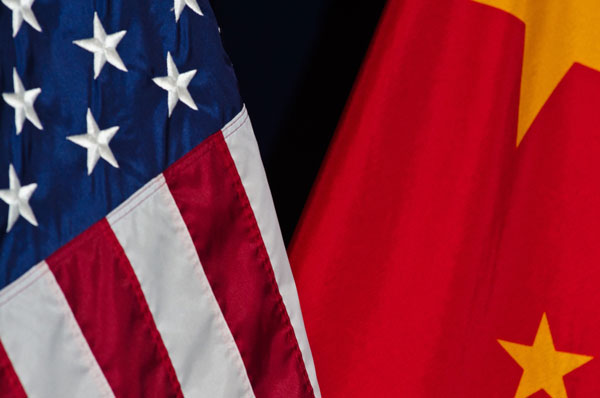John Kerry visits China to redress climate crisis

[Photo of the United States of America Flag and China Flag. Photo Credit to Rawpixel]
The United State’s special envoy for climate, John Kerry, visited China to surge momentum in combating the climate crisis whilst attempting to rebuild trust between the world’s two greatest carbon polluters.
John Kerry visited Xie Zhenhua, his Chinese counterpart, in Beijing from 16 July to 19 July 2023.
Their meeting had been previously postponed due to then-U.S. House Speaker Nancy Pelosi’s high-profile visit to Taiwan last year.
Her direct acknowledgement of Taiwan as a self-ruled island rather than a nation under Beijing’s territory, precipitated a sudden halt in climate talks between the US and China.
After much careful negotiation within the US and China’s political tensions, the Biden administration finally approved cooperation for climate.
The recommence of bilateral climate talks bore shocking statistics, with Kerry’s visit to Beijing coming on the heels of the hottest week on record globally.
Consequently, the US and China were the world’s two highest carbon emitters in 2022, with China at 9.9 billion tonnes and the US at 4.4 billion tonnes of CO2 emitted.
Kerry and Xie set on exploring new agreements with reciprocal duties to combat the consequences of their country’s emissions, whilst also addressing progress on pledges declared during COP27.
Held in 2022, the 27th Conference of the Parties (COP27) ended with a consensus of consistent implementation of the 2015 Paris Agreement aimed at reducing emissions.
The goal of this agreement is limiting the global temperature rise below 1.5 degrees celsius.
As the US and China are the world’s two worst climate polluters, their active collaboration and efforts are crucial in order to lead and promote cleaner environmental choices.
However, there are doubts on whether or not the two countries can sustain their promises as they showed contradictory movements.
As for the US, it recently passed two legislation funding clean energy, but also approved a sizable oil and gas drilling plan in Alaska shortly after.
Additionally, a 5% increase of natural gas consumption in 2022 was recorded and a total of five billion metric tons of carbon dioxide were emitted, a 1.4% rise from 2021.
As for China, they stated that although they would be carbon neutral by 2060 through the discontinuation of coal power, they would reach peak carbon emissions by 2030.
Although China massively boosted the installation of clean energy, the installation of new coal-fired power plants simultaneously occurred due to concerns over power shortages in 2021 and 2022.
To remedy progress backtracked before COP28, Kerry and Xie planned to discuss methods to help atone their country’s sidetracks from their original goals.
On 17 June, Kerry addressed China’s coal use and their plans on methane suppression, with the hopes of achieving a substantive agreement.
Kerry applauded China’s ever-increasing efforts to create renewable energy, with it on the track to breaking its target of installing 1.2 terawatt-hours of renewable energy before 2030.
However, as Kerry pushed China to specify annual amounts of greenhouse gas and reduce emissions on a faster timeline, China displayed discontent.
Xi Jinping, the president of China, stated that China will determine its own timetable and that the “tempo and intensity should be… determined by ourselves, and never under the sway of others,” according to the People’s Daily.
Kerry’s response was that the US was not attempting to ‘dictate’ or tyrannize China or any other nation.
Additionally, Kerry was met with an unsuccessful end to discussions on China’s coal expansion as China was adamant on preserving its coal business.
China strictly drew a clear line while making negotiations with the US by Wang Yi, the top foreign affairs official for China.
Yi stated that any bilateral talks on climate could not be separate from the broader situation of the US-Chinese relations.
Evidently, Washington expressed similar manners, seeking to maintain its suppression of Beijing in trade and technology whilst seeking climate cooperation, creating hurdles for candid cooperation.
Although Kerry’s visit ended with no new amendments and requires further talks, Kerry remains optimistic that the US and China will reach a compromise before COP28.
The visit itself sets as a hopeful stepping stone to heal the relationship between the US-China diplomacy, opening up other avenues of collaboration.

- Stella Kim / Year 11
- North London Collegiate School Jeju

![THE HERALD STUDENT REPORTERS [US]](/assets/images/logo_student_us.png)
![THE HERALD STUDENT REPORTERS [Canada]](/assets/images/logo_student_ca.png)
